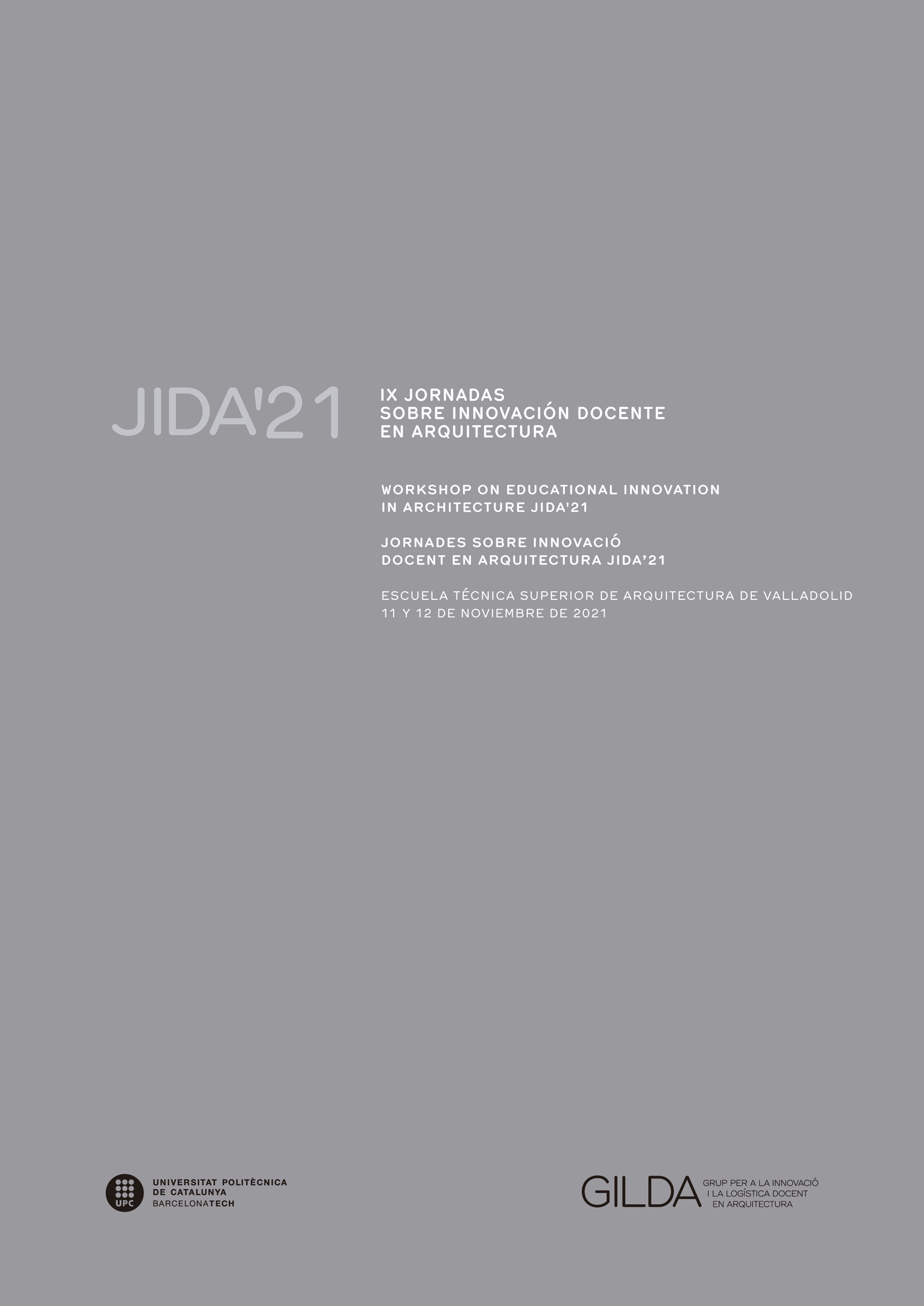Learning to live with others through design: other conversations and methodologies
DOI:
https://doi.org/10.5821/jida.2021.10544Keywords:
critical pedagogies, architectural education, Valparaíso, participant observation, online teachingAbstract
This communication addresses the use of the social and cultural anthropology methodology; "participant observation" in the architectural studio course "The good arts of living with others through design", which took place in 2020. The aim of the course was to approach some communities of practice that inhabit the hills of Valparaíso, in order to examine the role that design practices play in the cohesion of these communities. Both the statement and the didactics developed assumed the context of online education as an opportunity to test "other ways of doing" and more integrative perspectives to be addressed within the architectural practice. The "participant observation" allowed to shift the rigidity of the disciplinar analysis towards more affective and collaborative positions, allowing to overcome some limitations that the absence of physical spaces imposed by the confinement.
References
BARRIENTOS M. y NIETO, E. (2021). “Aprender a vivir con los otros a través del diseño. Comunidades de prácticas y saberes menores” en ARQUITECTURAS DEL SUR, 39(60), p.62-77.
BARTLING, J. (2019). Hacking architecture. The future of practice. Tesis de master por la University of Minnesota, EEUU.
BRAIDOTTI, R. (2020). El conocimiento posthumano. Barcelona: Editorial Gedisa.
CARRASCO, J.; ABELLAN, A.; y AMORÓS, V. (2014). “De lo doméstico compartido a la participación social: prácticas socio-arquitectónicas en la escuela de Alicante” en García-Escudero, D., Bardí Milà, B., eds. "II Jornadas sobre Innovación Docente en Arquitectura (JIDA'14), Escuela Técnica Superior de Arquitectura de Barcelona, 28 y 29 de Abril de 2014". Barcelona: UPC IDP; GILDA, 2014, p. 23-33.
CARTA, S. (2016). “Transdisciplinarity: A New Generation of Architects and Mediocritas” en Enquiry 13 (1), p. 1-6.
FRASER, M. (2005). “The cultural context of critical architecture” en Journal of Architecture, 10 (3). p. 317-322.
GIROUX, H. (2007). “Utopian thinking in dangerous times: Critical pedagogy and the project of educated hope” en Utopian pedagogy: Radical experiments against neoliberal globalization, p. 25-42.
GISBERT, E. et al. (2016). “Activar la comunidad de prácticas en la docencia universitaria: Proyectos Zero en Arquitectura en Alicante” en Tortosa M.T. et al. XIV Jornadas de Investigación en Docencia Universitaria. Alicante: Universidad de Alicante. p. 1077-1090.
GREENE, M.; SCHEERLINCK, K.; y SCHOONJANS, Y. (2012). “The new architect. Towards a shared authorship” en Good practices best practices. Highlighting the Compound Idea of Education, Creativity, Research and Practice. TU Delft.
GUBER, R. (2001). “La observación participante” en Guber, Rosana, ed. La Etnografía. Metodo, campo y reflexividad. Enciclopedia Latinoamericana de Sociocultura y Comunicación. Buenos Aires: Grupo Editorial Norma.
HERRERO, Y. (2018). La vida en el centro: voces y relatos ecofeministas. Madrid: Libros en Acción.
NIETO, E. (2018). “Investigar sí ¿Pero para qué mundos?” en Colección INVESTIGACIONES. IdPA_04, p. 13-23.
SERRA, M. (2020). “La docencia en arquitectura participada: oportunidades más allá de lo inclusivo” en García-Escudero y Bardí Milà (eds). “VII Jornadas sobre Innovación Docente en Arquitectura (JIDA´19)”. RU Books, UDP UPC, Barcelona.
NICULAE, R. (2012). “Gender issues in architectural education: feminine paradigm” en Review of Applied Socio-Economic Research, Volume 3, Issue 1/ 2012, p.144.
TEYMUR, N. (2011). “Aprender de la educación en arquitectura” en Revista DEARQ, Universidad de Los Andes, Colombia, Vol. 9, p. 8-17.
WENGER, E. (1999). Communities of Practice: Learning, Meaning, and Identity. Cambridge University Press.






















